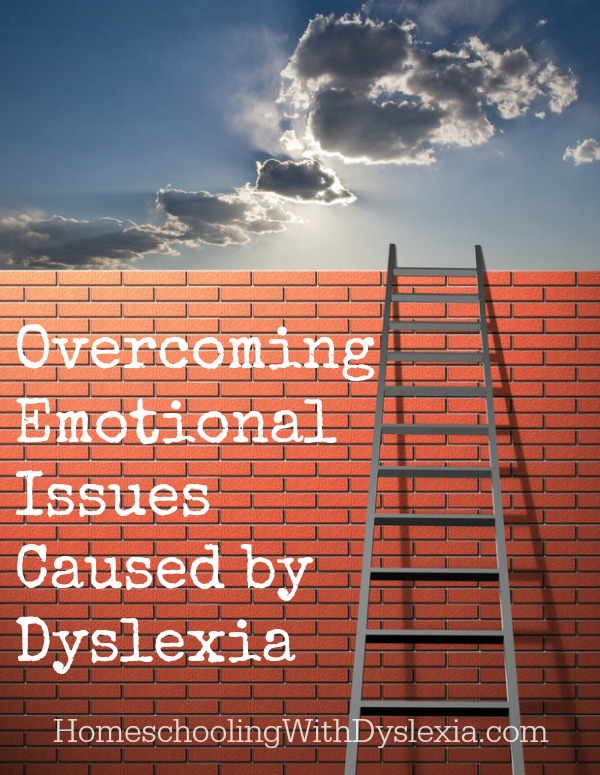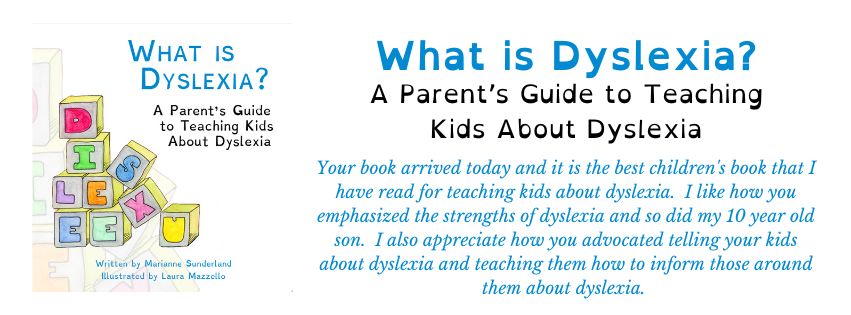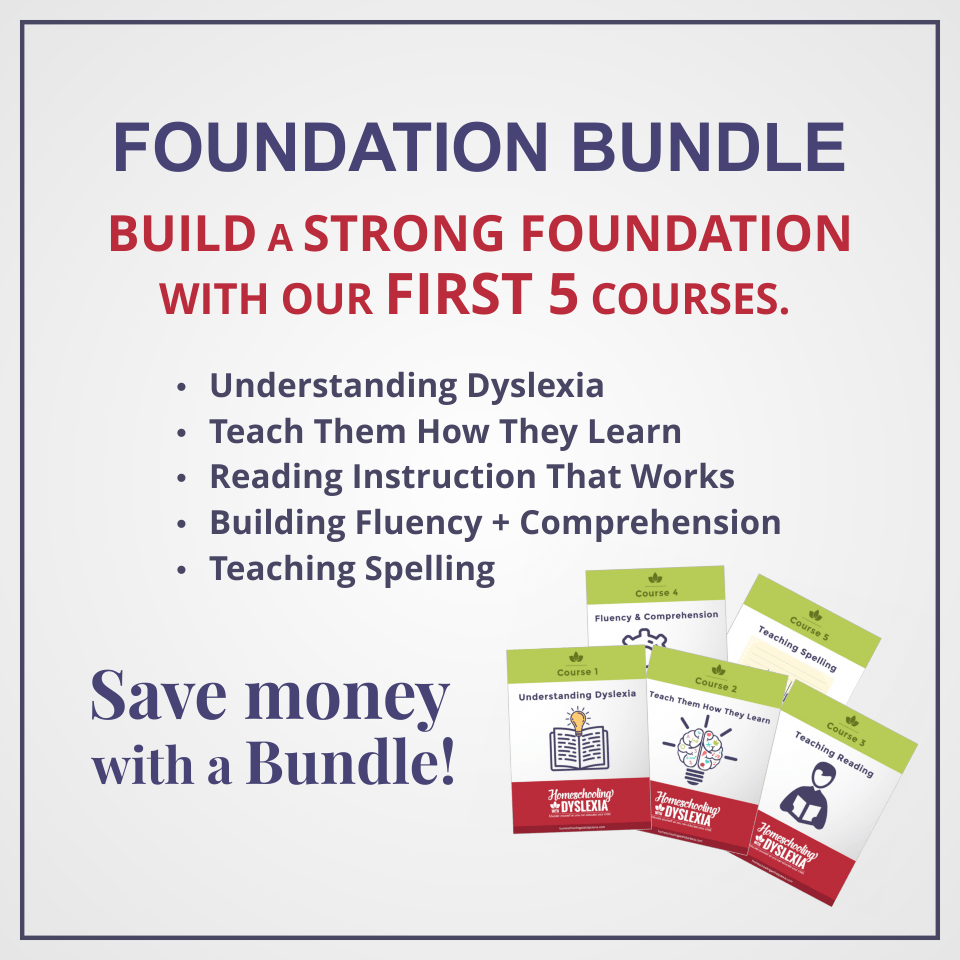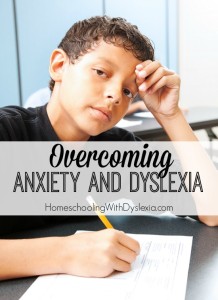The main factor that determines whether a person with dyslexia will thrive or not is the presence of someone in their life that is supportive. Here are some tips to help with overcoming emotional issues from dyslexia.

Yesterday we talked about how discouraging dyslexia can be. You can read that post, The Emotional Side of Dyslexia, here.
The gap between the dyslexic’s intelligence and abilities, being bright but consistently falling short in language arts and other areas, can cause the dyslexic student to develop perfectionist expectations or prolonged discouragement due to their daily struggles and frustrations.
Today we’re talking about what we can do to alleviate some of these pressures on our dyslexic kids.
How to Overcome Common Emotional Issues With Dyslexia
Successful adults with dyslexia often say that the most important factor in their success was the supportive presence of someone in their life that understood them and advocated for them. If you are reading this, that is probably you! Know that your support and advocacy for your kids will be the most effective thing you do, whether you have made or are making mistakes long the way or not.
Other factors that help a dyslexic overcome their emotional struggles are:
Education
Parents aren’t the only ones who need to understand dyslexia. Kids with dyslexia need to know what dyslexia is and is not. Read this list of myths and facts and help them to really understand that they are smart but learn differently. Consider signing up for my Understanding Dyslexia Course. This course goes into depth about all of this and focuses on the inherent strengths of the dyslexic mind that are so frequently overlooked.
I wrote the children’s book, What is Dyslexia?, to help parents guide their kids to understand their dyslexia – both the strengths and the weaknesses.

Testing
It is not always necessary to have your child tested for dyslexia, especially if you are homeschooling and you don’t need to qualify for special services from the school.
Dyslexia is the most common cause for reading and spelling difficulties. If your child is bright and struggles in these areas, it is most likely that they are dyslexic.
What testing can provide, however, is an explanation for their struggles. Many people are relieved to learn that they have average to above-average IQ and that there is a scientific explanation and solution for their learning difficulties. Read this to learn more about How and When to Get Tested for Dyslexia.
Self-Advocacy
This goes hand in hand with education. A dyslexic person who understands their diagnosis can then be taught to advocate for themselves. This means they can tell teachers, or friends, or Boy Scout leaders, or whoever what their needs are up front and not wait until a situation has gotten out of control before beginning conversation. Read this to learn more Teaching Kids to Self-Advocate.
Finding Talents
Find an area in which your child can succeed, whether it is athletics, arts, mechanical or whatever they have a bend for.
Take a Break
Studies have shown that people who are anxious cannot learn. If your child is anxious about schoolwork, it may be best to back off of the academics for a time. There is a lot of freedom in homeschooling. Taking a break can seem counterintuitive, especially if a child is already ‘behind’ their peers who are traditional learners.
Taking a break doesn’t mean you stop learning. Taking a break can simply mean stepping away from the books for some real life learning. Go to the beach, museums, conferences, expos or anything that your child likes. Use these opportunities for learning. Read, research and learn together. Show them that learning can be fun and rewarding and they will gradually come around.
Listen to Your Kids Feelings
Listen to your kids and hear what they are saying about how they feel. Remember, some dyslexics have processing and speech lags so be quick to listen and slow to speak. If you are not dyslexic, read this simulation example at Experience Dyslexia, to gain more understanding on what it is like to be dyslexic.
Daily Encouragement
- Reward effort not the finished product. This is the foundation of a growth mindset.
- Avoid using labels like ‘lazy’ or ‘stubborn’
- Help them set realistic goals – learning takes longer but can be achieved
- Implement effective accommodations
Not all families experience these struggles but most will experience at least a few of them. Homeschooling your dyslexic child, BY FAR, eliminates many of these issues, giving your family the freedom to individualize your child’s school/educational experience.
Get Educated

To learn more about dyslexia and creating a homeschool environment where your dyslexic children can thrive, consider taking one of our Parent Dyslexia Classes. These courses were designed to educate parents and children on what dyslexia really is and teach ways to overcome weaknesses and draw out strengths.
6 Attributes of Dyslexia Success
An incredible study was done that followed people with dyslexia throughout their formative years and early adulthood. This amazing study found 6 attributes that all of the successful adult dyslexics had. The good news is that all of them can be taught, fostered, and encouraged at home. Read about The 6 Attributes of Successful Dyslexics here.
Even though growing up with dyslexia can be difficult at times, you can guide your child through these difficulties and help them to become all that they were created to be.
Have your dyslexic kids struggled emotionally? How have you been able to help them?
Related Posts:








0 Comments